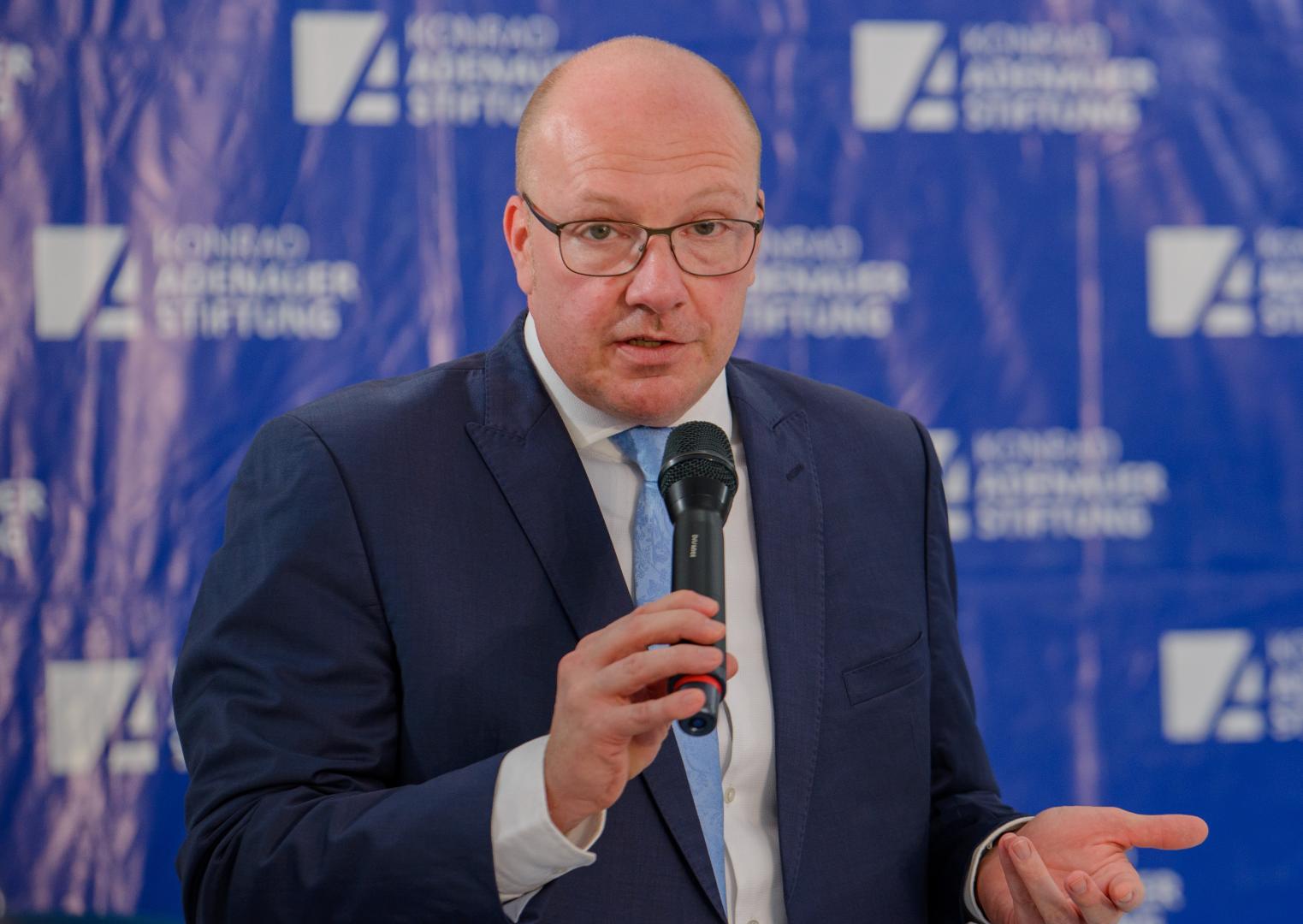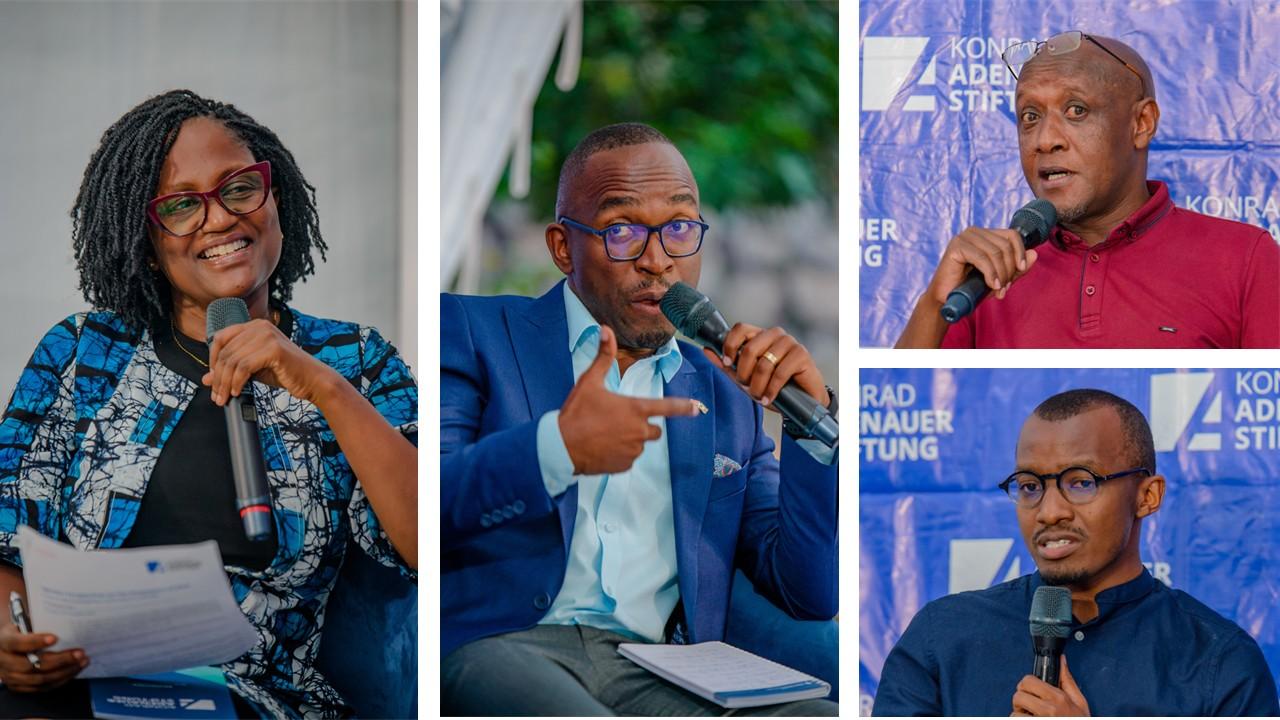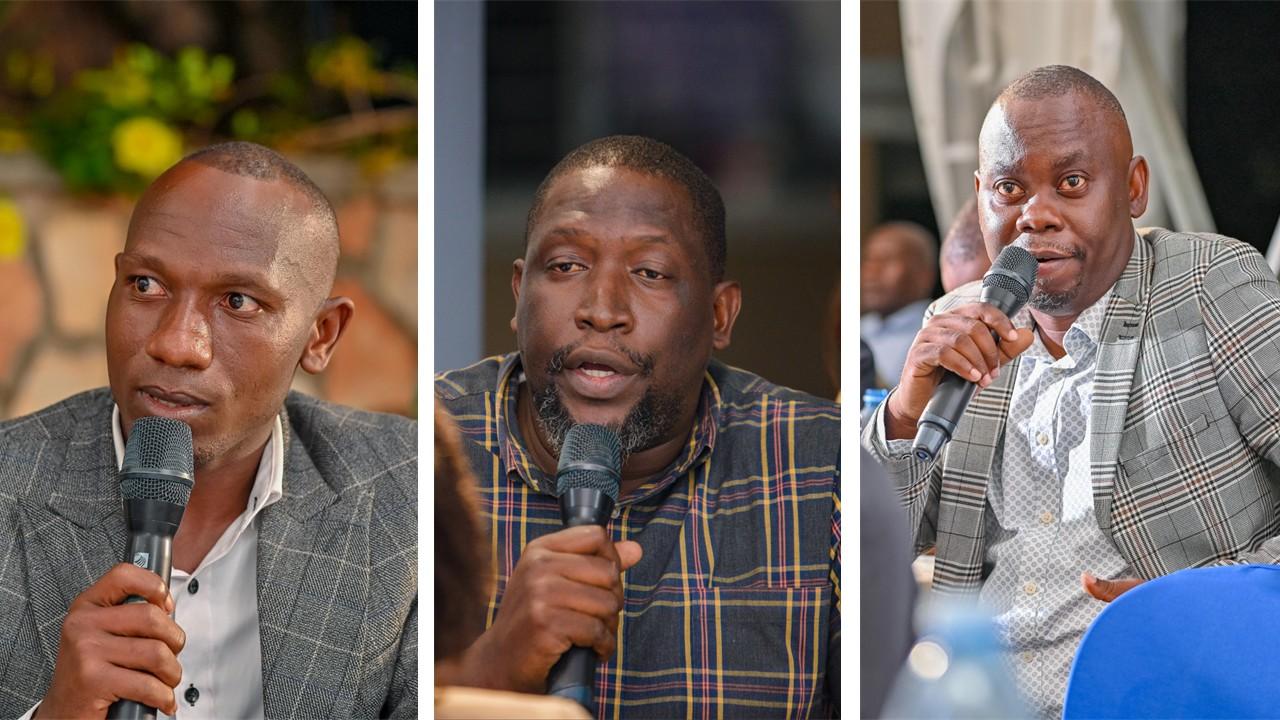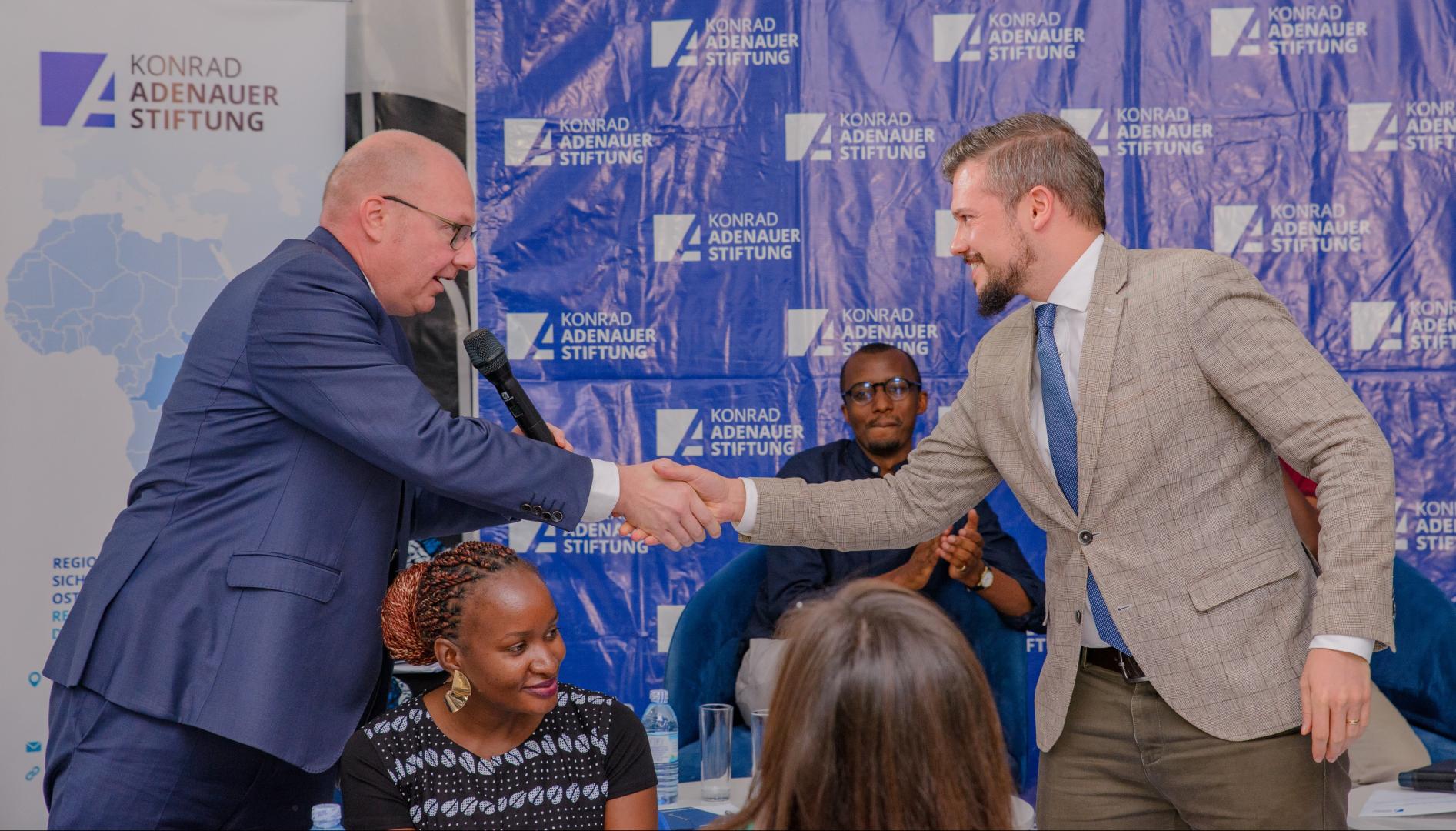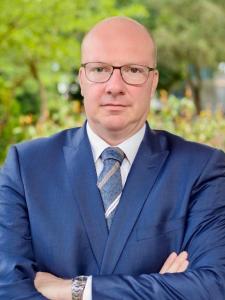The event was opened by Nils Wörmer, Director of the RP SIPODI East Africa, who emphasised that, given the fluid and dynamic nature of international political and security affairs, such discussions were important in order to create an understanding of these issues and their effect on local contexts.
Susan Nsibirwa, Managing Director, Nation Media Group moderated the panel discussion which included Raymond Mujuni, Deputy Director, African Institute for Investigative Journalism, Daniel Bwambale, an independent international relations researcher, and Dismas Nkunda, C.E.O, Atrocities Watch Africa. The panellists drew scenarios for Africa’s geopolitical outlook for 2025, weighed against the recent global trends. Notable of these trends was the war in Ukraine and the rise of right-wing movements in Europe, the incoming Republican administration in the U.S and the conflicts in the Middle East.
The panellists noted that the new NATO requirements have forced European countries to step up their defence capabilities, and as a consequence, their defence spending will rise beyond 2% of GDP. In addition, they observed that the Trump administration will be highly unpredictable, and inward looking. Whereas these two factors will likely reduce developmental aid to Africa, the panellists were confident that the continent shall remain an indispensable partner of the U.S and Europe as a market for manufactured goods, and a source of labour and mineral resources. Further, it was noted that Africa will continue to be a ground for geopolitical control amidst competing interests from especially the U.S and China. In contrast, it was observed that the Middle East could play a mediating role between the West and Africa.
It was also noted that there is a growing trend of non-institutionalised agency amongst young people in Africa citing examples of youth movements in Kenya and Nigeria. The panellists predicted that development partners will be drawn to cooperate with Africans in their unique formations rather than through the established state structures. Furthermore, the panellists were of the unanimous view that Uganda is and will remain a relevant partner of the European Union, playing a major regional role in peacekeeping, refugee management and economic cooperation.
The panel discussion was followed by a plenary session where the participants were invited to make contributions and ask questions. Participants weighed in on the role of regional economic blocs and other global alliances like the Non-Aligned Movement and BRICS.
In his closing remarks, Nils Wörmer, Director of the RP SIPODI East Africa, clarified about the new NATO requirements for member states and the effect of these requirements on Germany’s developmental aid budget, highlighting that the budget for the Federal Ministry for Economic Cooperation and Development is only a fraction of the additional budget required for defence, and thus, Germany will have to cut budgets for other sectors and not just development aid. Mr Wörmer also recognised and thanked Gregory Meyer who has been a Project Manager at RP SIPODI East Africa since June 2022 for his dedicated and passionate service to the programme. Mr Meyer will step down from this role on December 31, 2024, to take up other responsibilities in Germany. The event was concluded with a reception that fostered further discussions and networking.
About this series
The Konrad-Adenauer-Stiftung, its educational institutions, centres and foreign offices, offer several thousand events on various subjects each year. We provide up to date and exclusive reports on selected conferences, events and symposia at www.kas.de. In addition to a summary of the contents, you can also find additional material such as pictures, speeches, videos or audio clips.



